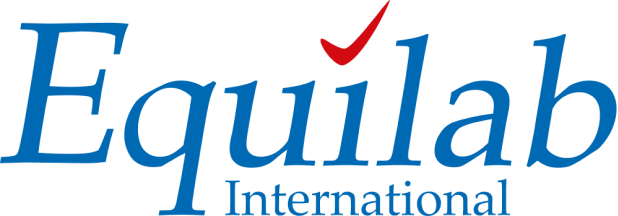
Service
Central
Laboratory Testing


Clinical laboratory testing plays a pivotal role to support bioequivalence study and clinical trial in Equilab. Clinical laboratory testing includes parameters such as routine hematology, biochemistry, urinalysis, electrolyte-level assessment, serology, pharmacokinetic, pharmacodynamic, immunogenicity, and protein analysis.
Our Clinical Laboratory Testing Scope’s:
Clinical Laboratory Testing
Clinical laboratory testing encompasses a wide range of analyses performed on various biological samples, including blood, urine, tissue, and other bodily specimens, to provide information on health status, disease detection, and treatment efficacy monitoring. These laboratories are manned by personnel trained to perform analysis on samples of biological specimens collected from patients.
Food and Beverage Testing
Food and beverage testing is a critical process that ensures the safety, quality, and compliance of food products with regulatory standards. It involves a comprehensive examination of various aspects, including chemical composition, microbiological contamination, nutritional content, and labeling accuracy.
Our nutritional component determinations are reliable, accurate, and cost-effective. The National Agency of Drugs and Food Control (BPOM) requires nutritional labeling for virtually every food product registered. Each package must contain a nutrition facts label that includes the following mandated nutrients and can include some optional nutrients. For that reason, we need to ensure the accuracy of nutritional analysis and food nutrition facts labels of the products and restaurant menus with laboratory nutritional analysis and/or database nutritional analysis.

Chemical Analysis
Chemical analysis of food involves the identification and quantification of nutrients, additives, contaminants, and residues. Techniques such as chromatography (HPLC UV-Vis, GC FID-MS), spectroscopy (UV-Vis), and Others. Chemical tests assess parameters such as moisture content, fat content, protein content, carbohydrates, vitamins, minerals, and pesticide residues to ensure nutritional adequacy and safety.

Proximate Analysis
The proximate analysis evaluates the nutritional content of food products, including macronutrients (carbohydrates, proteins, fats), micronutrients (vitamins, minerals), fiber, and calories. Proximate labeling is mandatory in many countries, and food testing ensures that labeled values accurately represent the composition of the product. Proximate analysis also helps consumers make informed dietary choices and addresses concerns related to dietary health and wellness.

Allergen Testing
Allergen testing is essential for identifying and quantifying allergenic ingredients including peanuts, tree nuts, milk, eggs, soy, wheat, fish, and shellfish in food products. Accurate allergen labeling is crucial for individuals with food allergies or sensitivities to avoid potential allergic reactions. Allergen testing methods include ELISA (Enzyme-Linked Immunosorbent Assay).

Microbiological Analysis
Microbiological analysis focuses on detecting and quantifying microorganisms, including bacteria, fungi, viruses, and parasites, in food samples. Microbial contamination can occur during production, processing, storage, or handling, leading to foodborne illnesses and spoilage. Common microbiological tests include Total Plate Count, Yeast and Mold, Coliforms, E. coli, Salmonella, and Others. These tests help identify potential hazards and ensure food safety and shelf-life stability.

Food Additives
Food additive testing is a crucial aspect of ensuring the safety and efficacy of additives used in food products. Additives are substances added to food to preserve flavor or enhance its taste, appearance, or other qualities. However, before these additives are approved for use, they undergo rigorous testing to evaluate their safety for consumption. Food additive tests assess parameters including sweeteners (Sorbitol, Sodium Saccharine, Aspartame, Sodium Cyclamate, and others), Preservatives (Sodium Benzoate, Potassium Ascorbate, Sodium Propionate, Sulfite, Cyclamate, and others), FCF Yellow, Allura Red, Berlian Blue, and others.

Food testing plays a crucial role in maintaining the safety, quality, and integrity of the food supply chain. By conducting rigorous chemical, microbiological, nutritional, and allergen analyses, food manufacturers can uphold food safety standards, meet regulatory requirements, and provide consumers with safe and nutritious food products.

Cosmetics Testing
In the realm of beauty and personal care, the allure of cosmetics often masks the rigorous processes they undergo before gracing store shelves. Cosmetic testing, a crucial phase in product development. It encompasses a series of assessments designed to ensure both safety and efficacy.
Equilab International is an expert in testing for the Cosmetics Testing requirements as well as specialty heavy metals, microbiology, and other components. The analytical methods used are official methods of the “Regulation of the National Agency of Drug and Food Control No. 16 of 2024 on Contaminants in Cosmetics”.
Chemical and microbiological analysis are vital tools for ensuring the safety, quality, and regulatory compliance of cosmetics. By conducting thorough analyses, cosmetic manufacturers can uphold product efficacy, mitigate health risks, and instill consumer confidence in their products.
Cosmetics testing is essential for verifying product safety, effectiveness, and adherence to regulatory standards. It can deliver high-quality products that meet consumer expectations and regulatory requirements.

Our Cosmetics Testing Scopes:
-
1-4 Dioxane
-
Acrylamide
-
Diethylene Glycol
-
Hydroquinon
-
Arbutin
-
Tranexamic Acid
-
Niacinamide
-
Heavy Metals (Pb,Hg, As, Cd)
-
Microbiology Testing (Total Plate Count, Mold and Yeast, Candida albicans, Staphylococcus aureus, and Pseudomonas aeruginosa)
-
Others
Methods Validation
Method validation is important in the pharmaceutical industry to show that all fixed methods used are suitable for their intended use and always provide reliable results. In another definition in the pharmaceutical industry, validation is a way to ensure that the manufacturing process is able to produce a finished product that meets established quality standards consistently. In addition, validation of analytical methods is required to meet GMP (Good Manufacturing Practices) standards. Analytical method development involves designing and optimizing analytical procedures for the quantification of active pharmaceutical ingredients (APIs), impurities, and degradation products. Validation of analytical methods ensures their accuracy, precision, specificity, and robustness for routine testing.

Our Pharmaceuticals Testing Scope’s:
-
Raw Material Testing
-
Active Ingredients Testing
-
Heavy Metals
-
Microbiology Testing
-
Impurities
-
Residual Solvents
-
Vitamins
-
Comparative Dissolution Test
-
Others

Pharmaceutical Testing
Pharmaceutical testing is a critical process within the pharmaceutical industry aimed at ensuring the safety, efficacy, and quality of medicinal products. These tests encompass a wide range of evaluations conducted throughout the drug development, manufacturing, and distribution processes.
Our Pharmaceuticals testings are reliable, accurate, and cost-effective. Equilab is an expert in testing for Pharmaceuticals requirements as well as specialty assays, impurities, residual solvents, heavy metals, microbiology, vitamins, and other components. The analytical methods used are official methods of the Farmakope Indonesia, United States Pharmacopeia (USP), European and British Pharmacopeia (EP and BP), and Japanese Pharmacopeia (JP), as well as specific customer methods.
Overview
Equilab International Central Laboratory Testing is fully comprehensive and includes testing of raw material, active ingredients, final product, intermediates, and starting materials for both small and large molecules. Equilab have specialized in the following areas of drug products, supplements, herbal medicines, food & beverages, cosmetics, clinical laboratories, and others.
Our accredited status proves that the Quality Management System and analytical methods used, have meet the stringent requirements of the recognized standard of quality for testing laboratories in the Pharmaceutical, Cosmetics, and Food & Beverage industries. This also means that you, as our customer, can expect high-quality, reliable results time after time. With ISO/IEC 17025 accreditation we have the quality policies, procedures, and detailed work instructions necessary to ensure proper technical, as well as managerial, operating practices in our laboratories. In additon, with ISO/IEC 15189 accreditation we have an excellent clinical laboratory.
All analyses are performed according to Farmakope Indonesia, United States Pharmacopeia (USP), European and British Pharmacopeia (EP and BP), and Japanese Pharmacopeia (JP), as well as specific customer methods.

